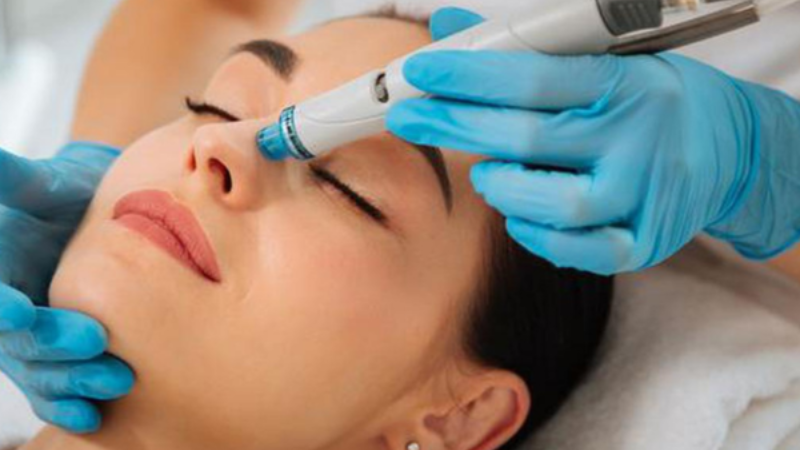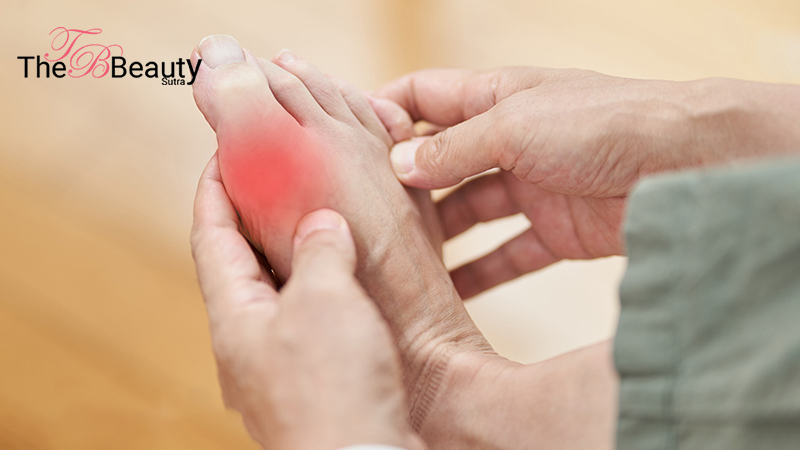The impact of diet on skin health is profound, influencing everything from complexion to resilience against various skin conditions. What we consume plays a critical role in nourishing our skin from the inside out. Nutrient-rich foods can enhance skin elasticity, moisture retention, and healing processes, while poor dietary choices can lead to issues like acne, dryness, and premature aging. Understanding the connection between diet and skin health empowers individuals to make informed nutritional choices that promote a clear, vibrant, and healthy complexion. We can support and maintain optimal skin health by prioritizing a balanced diet rich in vitamins, minerals, and antioxidants.
Table of Contents
Understanding the Skin-Diet Connection For Skin Health
Our skin is the body’s largest organ and serves as a reflection of our overall health. The foods we consume provide essential nutrients that support skin structure and function. A well-balanced diet can improve skin elasticity, and hydration, and even protect against environmental damage. Conversely, poor dietary choices can lead to skin problems such as acne, premature aging, and inflammation.
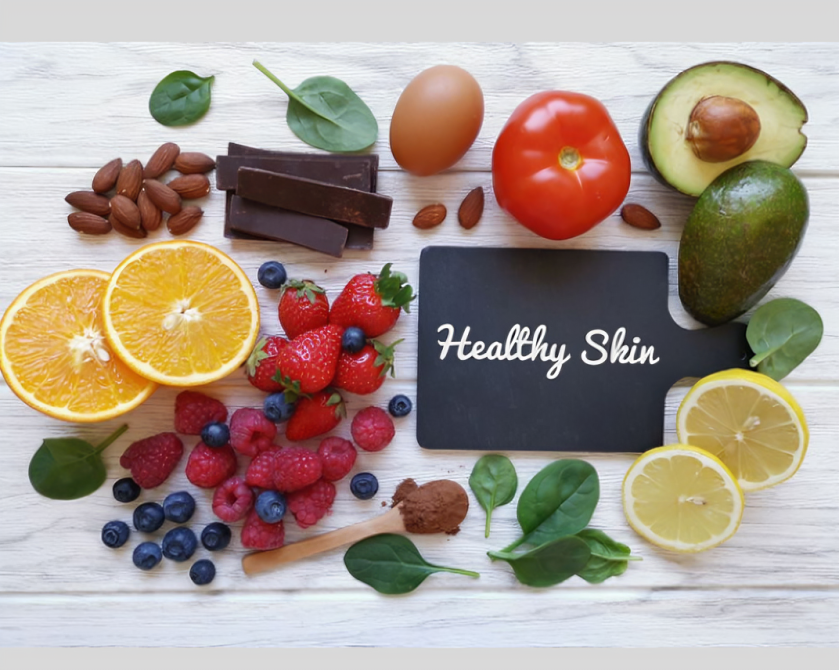
Key Nutrients for Healthy Skin
Antioxidants: Antioxidants are crucial in combating free radicals, and unstable molecules that can damage skin cells and accelerate aging. Vitamins A, C, and E are potent antioxidants that help maintain healthy skin.
Vitamin A: Found in sweet potatoes, carrots, and leafy greens, Vitamin A promotes cell turnover and prevents clogged pores.
Vitamin C: This vitamin is vital for collagen production, which maintains skin elasticity. Citrus fruits, strawberries, and bell peppers are excellent sources.
Vitamin E: Nuts, seeds, and spinach are rich in Vitamin E, which protects the skin from oxidative stress.
Omega-3 Fatty Acids: Omega-3 fatty acids have anti-inflammatory properties that can soothe irritated skin and reduce acne and redness. These essential fats are abundant in fatty fish like salmon, mackerel, and sardines, as well as flaxseeds and walnuts.
Zinc: Zinc plays a crucial role in skin repair and inflammation control. It helps in healing wounds and reducing acne flare-ups. Foods rich in zinc include oysters, beef, pumpkin seeds, and lentils.
Biotin: Also known as Vitamin B7, biotin is important for maintaining skin hydration and elasticity. Eggs, almonds, and whole grains are good sources of biotin.
Water: Hydration is key for maintaining plump, healthy skin. Drinking sufficient water helps flush out toxins and keeps skin cells functioning optimally.
Foods That Promote Skin Health
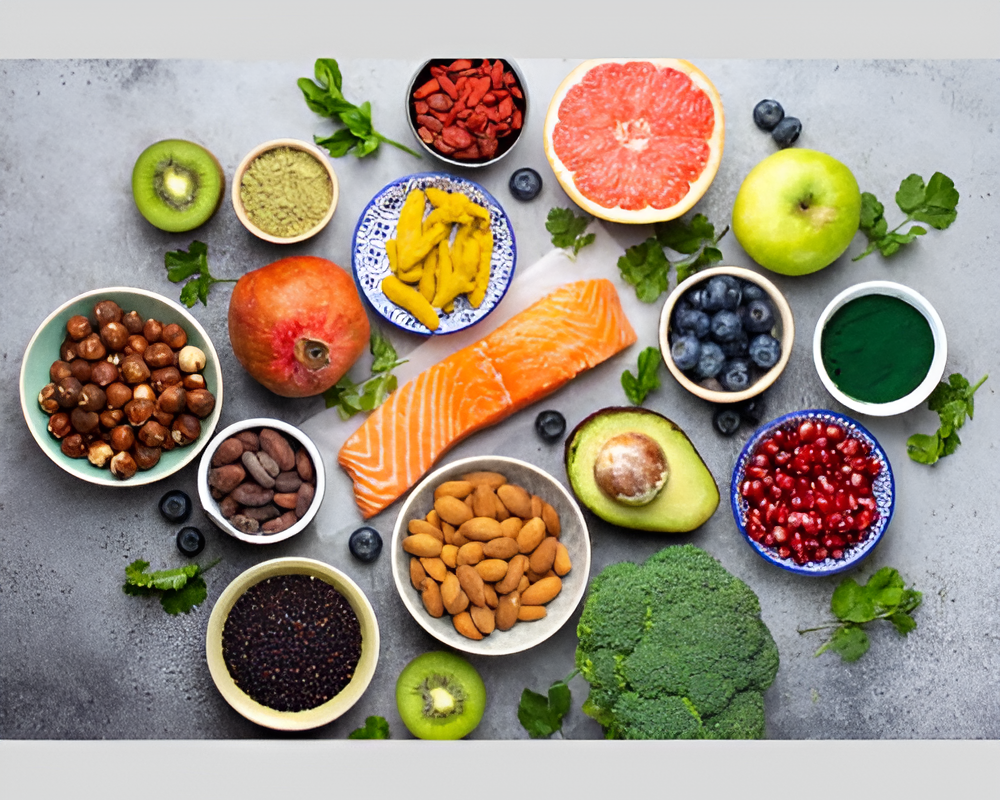
Fruits and Vegetables: Colorful fruits and vegetables are packed with vitamins, minerals, and antioxidants that nourish the skin. Berries, citrus fruits, spinach, kale, and bell peppers are particularly beneficial.
Healthy Fats: Healthy fats, such as those found in avocados, nuts, and olive oil, help maintain the skin’s lipid barrier, which is essential for moisture retention and protection against environmental damage.
Lean Proteins: Proteins are the building blocks of skin tissue. Incorporating lean proteins like chicken, turkey, tofu, and legumes into your diet can aid in skin repair and renewal.
Whole Grains: Whole grains, such as brown rice, quinoa, and oats, provide fiber and essential nutrients that support skin health. They help regulate blood sugar levels, reducing the risk of acne.
Green Tea: Rich in polyphenols, green tea has anti-inflammatory and antioxidant properties that can improve skin health and reduce the signs of aging.
Foods to Avoid for Clearer Skin
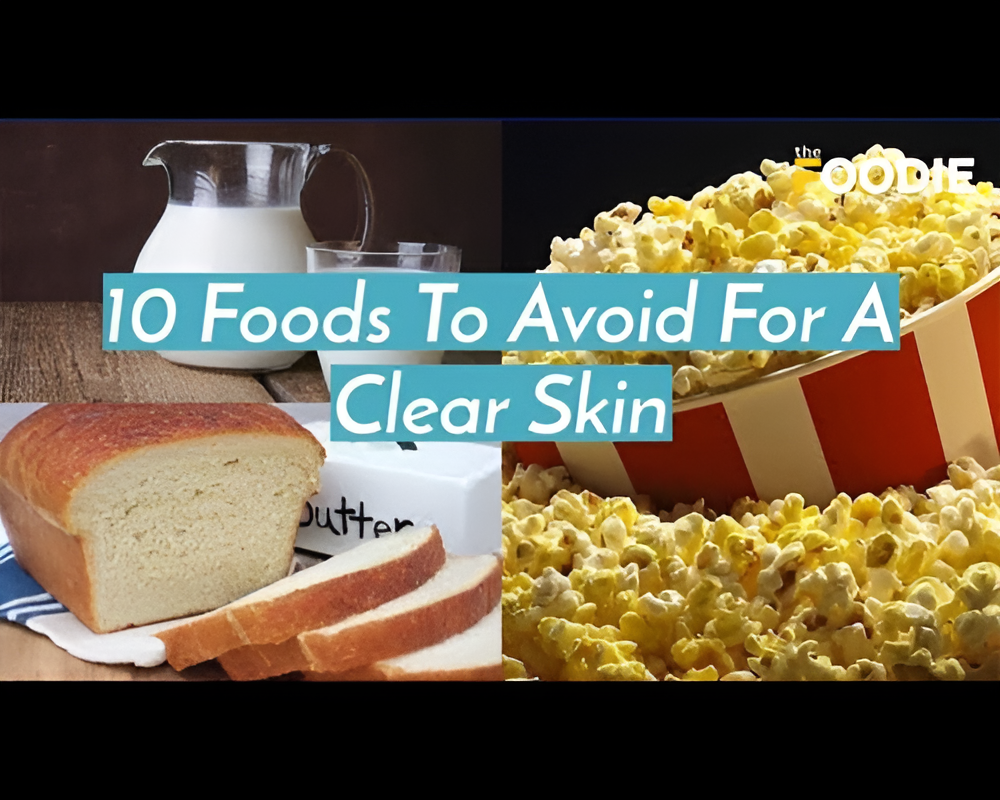
Sugary Foods and Beverages: High sugar intake can lead to a spike in insulin levels, which may increase the production of oils and contribute to acne breakouts. Reducing the consumption of sugary snacks, sodas, and processed foods can benefit skin health.
Dairy Products: Some studies suggest a link between dairy consumption and acne. Hormones present in milk may trigger breakouts in some individuals. Consider moderating dairy intake if you notice skin issues.
Refined Carbohydrates: Foods like white bread, pasta, and pastries can cause a rapid increase in blood sugar levels, leading to inflammation and acne. Opt for whole-grain alternatives instead.
Processed and Fried Foods: These foods are often high in unhealthy fats and can contribute to inflammation and clogged pores. Limiting the intake of fast food, chips, and fried snacks can improve skin clarity.
Personalized Approach to Diet and Skin Health

While the general guidelines above can benefit many, it’s important to remember that everyone’s skin is unique. Factors such as genetics, lifestyle, and pre-existing health conditions play a role in how diet affects your skin. Here are some tips for a personalized approach:
Observe and Document: Keep a food diary to track what you eat and any skin changes you notice. This can help identify specific foods that may be causing issues.
Consult a Professional: A dermatologist or nutritionist can provide personalized advice based on your skin type and health goals. They can help you create a diet plan that supports your skin’s needs.
Stay Hydrated: Drink plenty of water throughout the day. Herbal teas and water-rich fruits and vegetables can also contribute to your hydration goals.
Balance is Key: Aim for a balanced diet that includes a variety of nutrients. Avoid extreme diets that cut out entire food groups, as they may lead to nutrient deficiencies.
Conclusion
The impact of diet on skin health is profound. By nourishing your body with the right foods, you can achieve a radiant complexion and support your skin’s overall health. Embrace a diet rich in antioxidants, healthy fats, lean proteins, and whole grains, while avoiding excessive sugar, dairy, and processed foods. Remember, healthy skin starts from within, and the choices you make at the dining table can be as powerful as the products you apply to your skin. So, next time you plan your meals, consider them a vital part of your skincare routine.

